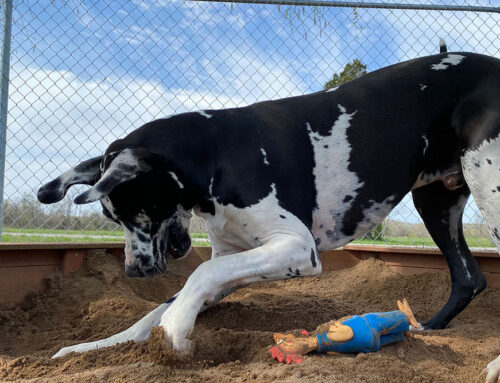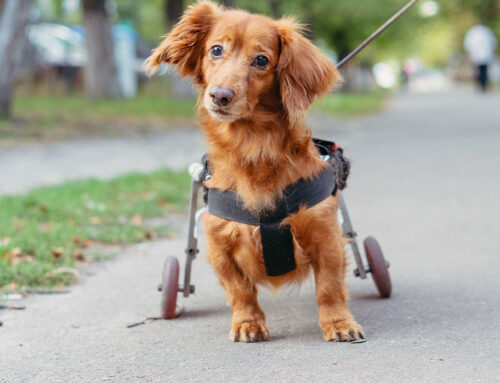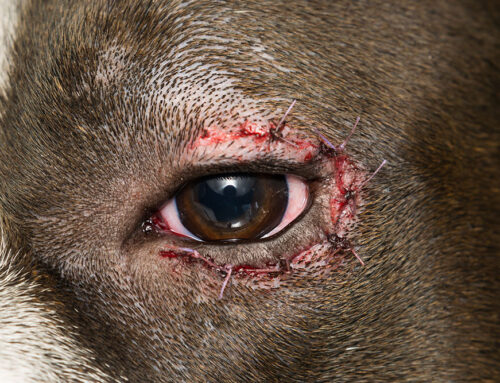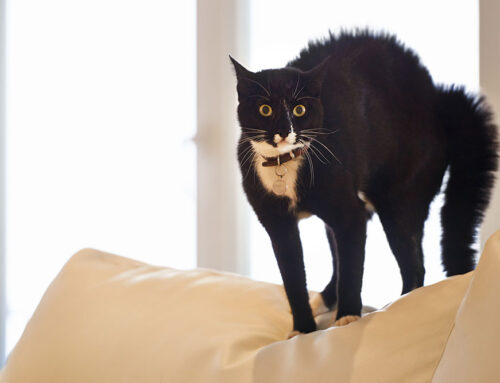You may not be familiar with the term “brachycephalic,” but you would certainly be able to pick a brachycephalic pet out of a lineup. Those adorable, snorting, smushed-faced dogs and cats—you know who we’re talking about—are classified as brachycephalic, a Greek word that literally means “short head.” Now it makes sense, doesn’t it?
Brachycephalic breeds include the English and French bulldog, Boston terrier, pug, pekingese, boxer, shih tzu, and the Persian cat. Our team at Wales Animal Clinic is highlighting how these cute animals’ special features contribute to their myriad health problems and risks, and how to keep them healthy.
Brachycephalic pets—listen for obstructed airways
The skeletal structure of brachycephalic pets—particularly their disproportionately large, uniquely shaped head and shortened muzzle—causes the majority of their respiratory health conditions. Brachycephalic obstructive airway obstructive syndrome (BOAS) compromises your pet’s ability to take in oxygen and regulate their body temperature, and can be life-threatening.
BOAS is a collective term for any combination of airway abnormalities, including:
- Narrow nostrils (i.e., stenotic nares) — Brachycephalic pets’ iconic flat muzzle compresses the nostrils, which may be slit-like or completely closed, and causes air flow resistance.
- Narrow trachea — Compared with their large head, brachycephalic pets have an abnormally narrow trachea (i.e., windpipe).
- Elongated soft palate — Excess tissue at the back of the throat extends beyond normal limits and may obstruct the airway, making normal breathing difficult for brachycephalic pets, who breathe noisily and snore.
- Everted saccules — Small cyst-like structures on both sides of the airway may be everted, and can be pulled into the trachea during inhalation.
Monitor your pet closely, and contact your veterinarian if you notice any of the following BOAS signs:
- Excessive breathing noise
- Snoring and snorting
- Exercise intolerance
- Respiratory distress
- Abnormal sleeping positions
- Propping open the mouth with a toy
- Abnormal gum color after exertion
- Collapse
Brachycephalic pets can overheat quickly, including in cool weather, and need protection by avoiding overexcitement, stress, and heatstroke that can all lead to collapse and respiratory arrest. Limit your pet’s outdoor activity during warm weather, and never leave them unattended outdoors or in a parked car.

Brachycephalics pets—keep an “eye” on their eyeballs
Because brachycephalic pets have shallow eye sockets, their eyeballs are prominent and actually protrude, which frequently results in the cornea drying, especially in the eye center. Brachycephalic pets also are prone to painful corneal ulcers because of their short nose and prominent eyes—basically, their eyes act as a bumper, and objects can damage (i.e., scratch) their eyeballs before the rest of their body. Brachycephalic pets can also suffer from proptosis (i.e., the eyeball is displaced from its socket), which requires emergency surgical correction. To help prevent these problems, keep your pet’s eyes clean and free of debris, and watch for signs such as squinting, redness, or watery eyes.
Brachycephalic pets—brush their crowded teeth consistently
Brachycephalic pets’ facial structure means their teeth are overcrowded, so food articles easily become trapped and attract bacteria that cause inflammation and make them vulnerable to various dental issues. Therefore, they need frequent veterinary dental examinations and cleanings under anesthesia to remove damaging debris, extract malpositioned or broken teeth, and to slow or prevent periodontal disease. You should also establish an at-home dental care routine that includes daily toothbrushing for your pet, taking special care to reach as many sides of their—often rotated—teeth as possible.
Brachycephalic pets—soothe and protect their skin
Brachycephalic pets typically have excess skin folds on their face, particularly under their eyes and around their mouths. These areas trap moisture and debris, which can lead to bacterial and yeast infections. Gently wipe your pet’s facial folds frequently to keep these areas clean and dry.
Brachycephalic pets—watch their weight closely
Obesity may not be a genetic condition, but an overweight brachycephalic pet is of particular concern, since excess weight exacerbates many of their health issues. Most brachycephalic pets already struggle to breathe freely, which is made worse if they have fat deposits in the neck and chest. Ensure your brachycephalic pet maintains a healthy weight by routinely checking their weight, assessing their body condition score, providing adequate exercise, and portioning their food based on their nutritional needs. Ask your veterinarian for advice on your brachycephalic pet’s weight or to customize a diet.
The best way to support your brachycephalic pet is to ensure they receive regular wellness and preventive care. Our veterinary professionals can help you care for your special pet with a personalized treatment plan that addresses their breed-related issues. Contact Wales Animal Clinic to schedule an appointment.







Leave A Comment